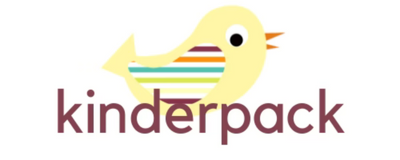Why Using A Baby Carrier Makes Breastfeeding Easier

A baby carrier is one of the best tools for supporting a breastfeeding relationship. While there are many benefits to using a carrier, evidence shows that by using a baby carrier, you are likely to breastfeed your baby for a longer period of time. Here are three reasons why wearing baby increases breastfeeding duration:
Proximity
The closeness created by baby in a carrier is the primary reason why breastfeeding duration is increased. More frequent latching and feeding sends messages to make more milk, and the body responds accordingly. Breastfeeding on demand and when baby cues, rather than a set schedule, also lends itself to keeping a robust supply, and in turn that supports the length of the breastfeeding relationship. You are more likely to feed baby before they get over-hungry as well, creating an overall more peaceful routine for everyone.
Touch
After birth, baby is placed skin to skin, also known as Kangaroo Care. Evidence shows this is beneficial to both premature and full-term healthy babies, not just physically, but emotionally and socially. Oxytocin is released, creating those important feelings of bonding and a sense of calm, not just for baby, but for the birthing person as well. When it comes to breastfeeding, oxytocin plays an important role, as it’s what drives your let down reflex. Kangaroo Care is often seen as being just after birth, but it continues to have a benefit beyond that, and carrying is the natural next step. A carrier is one of the best ways to make touch and interaction, also important for baby’s brain, a regular part of your day to day routine. Your touch reminds baby you are there, creates trust, and that secure and healthy attachment will benefit them the rest of their lives. The desire to kiss your baby even serves a purpose, to sample the germs on your baby’s head, and create the perfect antibodies in your milk to fight those pathogens.
Smell
Keeping your baby close means smelling your baby, a large influence on our ability to bond. While even scientists don’t understand completely how complex this exchange is, we do know that smelling a baby, particularly a newborn, activates reward-related parts of the brain in women. Even if they’ve never given birth. Babies also know the smell of their mother and their milk specifically, another clue along with their small stomach size, that keeping them close and feeding frequently is what we are designed to do.
Credits:
Pisacane A, Continisio P, Filosa C, Tagliamonte V, Continisio GI. Use of baby carriers to increase breastfeeding duration among term infants: the effects of an educational intervention in Italy. Acta Paediatr Oslo Nor 1992.
Bergman NJ. Neonatal stomach volume and physiology suggest feeding at 1-h intervals. Acta Paediatr Oslo Nor 1992.
Johan N. Lundström, Annegret Mathe, Benoist Schaal, Johannes Frasnelli, Katharina Nitzsche, Johannes Gerber and Thomas Hummel. Maternal status regulates cortical responses to the body odor of newborns. Front. Psychol., 05 September 2013.
Alison B. Wismer Fries, Toni E. Ziegler, Joseph R. Kurian, Steve Jacoris, and Seth D. Pollak. Early experience in humans is associated with changes in neuropeptides critical for regulating social behavior. PNAS November 22, 2005.
Laura is a multifaceted educator for parents from pregnancy & beyond. With ten years of experience teaching, Laura has become a trusted source of knowledge allowing her to speak or write confidently in a variety of babywearing & postpartum related subjects.
She currently resides in Los Angeles with her husband Dave & four children. She loves coffee & Disney days & is passionate about helping parents become more confident through her nonprofit, BabywearingLA
Laura Brown - Babywearing Consultant, Full Spectrum Doula, Lactation Educator, Kangaroo Care Certified & Child Passenger Safety Technician

